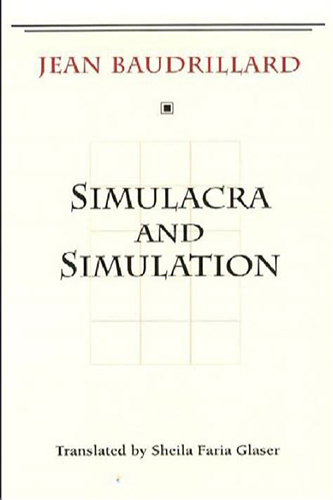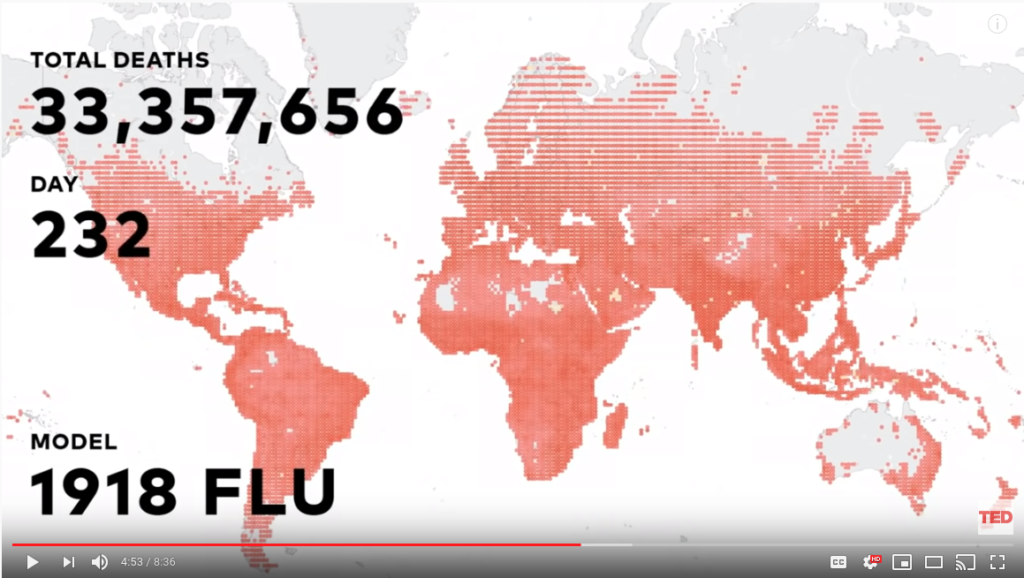Apocalypse, Politics
There is no “going back to normal” after this. Things will never be the same.
It all does feel like a scene from a Michael Bay film, doesn’t it? A typecast news anchor-woman in a responsible blazer flashes across our screen, her muted voice playing in the background. “Scientists are rushing to find a cure for the vaccine, but experts say it could be over a year away.” Will Smith appears on screen, oil smudges on his face, absolutely glistening with sweat. He’s shirtless, because of course he’s shirtless.
Your perspective on tragedy depends largely on what you already believe about the world in general. For most people, “I Am Legend” was the story of a man and his dog, sacrificing everything to save humanity, while maintaining mental balance in isolation.
For the alt-right, it was the slow realization that perhaps the white race wouldn’t continue, and all their efforts were doomed. Can you imagine being Richard Spencer, watching the opening scene from I Am Legend and thinking, “Oh come on! This is fucking bullshit man! They killed off the white race?!”
But we’re not living in a Michael Bay film. The real fiery explosions don’t happen when you leave a bucket marked “oily rags” next to your BBQ grill. In the real world, fiery explosions are metaphors about leadership; a President bumbling and lying his way through the most deadly global crisis since World War II.
In 12 to 18 months, scientists will deliver a vaccine. If all goes well, a herculean effort to manufacture and deliver a cure worldwide will mean we can pause, take a moment to grieve, and then rebuild our society. The way we rebuild will mean taking account of all our failures, and then promoting solutions that ensure this never happens again.
The inquiry of “Rebuilding” (capital “R” intended) is consequential beyond the delivery of a vaccine, and bringing stability back to the global economy. Rebuilding means asking difficult questions about why our society was so fragile, that in just weeks, a virus could engulf the world’s two largest economies in China and the United States, with much of the European Union on the brink. The rest of the world is still measuring what the outbreak will look like when it reaches places where sanitation, hospitals, and medicine don’t quite reach an OEC standard.
To ponder deep and philosophically for a moment: Perhaps things were already fucked up, and then this virus came along and made things extremely fucked up. After the vaccine has been found, I don’t want to return to a fucked up world. We should take this opportunity to un-fuck things, so that things aren’t fucked up anymore.
Let’s play the blame game.
Across the internet, I keep seeing a similar refrain, which is our collective desire to restore what was once chaotic, but still tenable. However, on the other side of this river, we won’t be living in the same world. This pandemic has exposed us, stripping away the facade — and from an American standpoint, exposing the lies of the simulacra we created.
This could probably be expanded into a PhD-level thesis, but I’m going to attempt to make the concept accessible, because it’s a small miracle you even read this far already. The United States is going to be uniquely ravaged by the novel coronavirus, because our government failed to protect us, full stop. Any time I have posted about the concept of assigning blame on Twitter, defenders of President Trump have pilloried me for “politicizing a tragedy” rather than pursuing unity. Despite their protestations, I do think accountability matters: President Trump‘s administration made critical blunders in the management of pandemic response, and it happened way back in 2018 — long before this situation exploded. Ignoring accountability and attempting to obfuscate the facts will only make us less safe in the future.

The United States was primed and ready for a disaster. In Jean Baudrillard‘s 1981 book “Simulacra and Simulation“, the idea of empty vanity is contrasted with “simulacra” — the idea of pretending to be something that never existed. Simulacra a simulation of a simulation; a crude copy of something wishful, but completely overwrought, focused on empty vanity. President Trump is the embodiment of simulacra; a trust-fund created adult, playing the role of “successful businessman”, pushing forth a nationalist, jingoistic view of American dominance and strength.
Roughly 35% of Americans coalesced around the idea of “looking strong”, and the notion that we would be better off building walls, isolating ourselves, and finding minority groups to blame for our problems. Donald Trump effectively used the apparatus of the right wing media to polarize the country, making communication impossible. The dangers, according to Trump’s new brand of conservatism, were socialism (supported by some truly bonkers justifications), liberalism, illegal immigration, zero-sum trade disputes, and foreign policy that focused on making (brown*) people feel unwelcome.
Everything hinged on the concept of a strong military, and the ability to bomb anyone, anywhere. President Trump’s bizarre rantings about making the military stronger (than it has ever been), respecting the troops (more than any other President in history), and defeating more foes (than ever in history) — these were all empty claims. It was the simulacra of strength, rather than actual strength.
Thousand mile walls and warplane guns are empty vanity; a projection of strength that ignores other threats to our stability and security. Donald Trump’s version of America is more about being perceived as strong, rather than actually being strong. Critically, many Americans agreed with him, creating a cult of personality that no controversy would topple, and a cabal of GOP leadership unwilling to hold him accountable.

Americans have a unique concept of what makes something strong, or capable. A lifted, heavily modified Ford F-250 takes the idea of off-road capability, and Spinal Tap’s everything up to 11 — because 11 is louder than 10. A truck like this F-250 exists as empty vanity. Its sole reason for existence is to be perceived as tough, and capable. This truck is simulacra, because it’s about other people looking at you, and you wanting them to believe the vehicle you’re driving could tackle anything.
In reality, lifted massive trucks are empty vanity, and an easy opportunity to make jokes about phallic compensation. When owners of these trucks modify (see: “chip” or “tune”) their fuel and air mapping, it puts enormous stresses on the engine and transmission. Owners of these trucks know what it’s like to have their trucks in the shop. Their tires are all wrong for actually tackling mud or snow. They’re heavy as hell, and would sink like a rock into mud. Add on to all those negatives terrible fuel economy, difficultly parking them, and annoyances like simply getting through a Chick Fil A drive through, and you begin to wonder what the purpose of all the bling actually is. Does it look cool? I guess that depends on your taste in vehicles.
If you want actual off-road capability, you get a beater old Jeep. It’s not much to look at, but that’s because actual capability isn’t about appearances and bravado. You don’t daily drive an old beater Jeep to impress anyone. In fact, they’re loud, uncomfortable, and they handle on-road duties like a Maytag refrigerator.

Now a global pandemic has arrived, and the illusion of preparedness has been shattered. There are a few Americans still in the minority, who believe “the media is overreacting” and that everything will soon return to normal. This unfortunate minority were poisoned by a media apparatus and lie-machine that was designed for polarization rather than information. (Thanks a lot, Trish Regan.)
This is our moment of reckoning. We were never strong, and “big strong men were never crying and calling the President sir.” We were only the illusion of “great”, and making us “great again” through the lens of simulacra was destined to fail.
The real threat to our security wasn’t a cartoonish Muslim jihadist in a ski mask, firing an AK-47 into the air, screaming “Death to America!”
It wasn’t a caravan of displaced Central Americans, trying to escape the violence of drug cartels.
China wasn’t our foe, and our trade war with them ended poorly. It turns out, imposing tariffs on medical supplies like facial protection masks, hopsital gloves, and sanitary wipes meant when we needed them most, we didn’t have them.
The threat of “socialism” in the form of progressive reforms wasn’t the bogeyman Fox News drummed it up to be. In fact, Republicans are now advocating for a temporary UBI plan, along with everyday heroes like Rep. Katie Porter making sure we get free healthcare through this crisis. Someone, please check Hell, because it has surely frozen over.
After all the pomp and bluster about how America would be made great through the imagined re-development of light industry, and the flex of bombs blowing up brown people in faraway places, it fell flat against the reality of what we needed most: Scientists and doctors, doing the granular, boring work of computer modeling modeling a pandemic, and role-playing the results.
The biggest threat to our nation, capable of bringing our economy and way of life to a screeching halt, was microscopic — arriving in handshakes, hugs, and sneezes. In a nation armed to the teeth, ready to fire upon any conventional enemy, and dispatch them from whence they came, we were no match for people exchanging high fives, or having lunch with a small group of friends.
Why didn’t we listen to the people trying to warn us?
Did anyone know we weren’t ready? Could we have seen this all coming? Yes. Some people did, and they tried to warn us. Notable multi-billionaire Bill Gates gave a TED talk five years ago, talking about this current scenario. He predicted an outbreak similar in scale to the Spanish flu may wipe out more than 33 million people worldwide. Gates may have been bullish on his numbers, because it’s not clear yet how many people could die from the coronavirus outbreak before a vaccine is produced. My personal opinion, after reading the Imperial study… is probably 50-60 million.

In disaster movies, we dramatize events. There’s always a hero scientist, paired up with a stunning female protagonist/love interest. The scientist looks at all the data, and attempts to sound the alarm, but the economic interests of doing nothing outweigh the science. Usually, the people being warned accuse the scientist of being an alarmist.
If you’d like to watch a terrible movie about this precise scenario, I highly recommend Dante’s Peak. There are so many movies about society ignoring scientists in favor of economic interests, you could write your PhD thesis about it. (Some people have actually done it.)
I don’t mean to digress, I just wanted to highlight that there is truth layered into this fiction. The reason those movie scripts exist is because fiction often isn’t far from truth. Today, the fiction of the people trying to sound the alarm has run headlong into the truth of how a viral pandemic can dissolve the glue of society in weeks.
After we have buried our dead, the time will come for pragmatism.
Joseph A. Schumpeter was notable for asking hard questions about capitalism, most notably, whether or not it can survive. In its current form, the answer is clear: No.
We have known for years that most Americans don’t have more than $400 in savings. During an economic free-fall, when unemployment is climbing, and there is no recourse, the flaws of our economic system are thrown into the octagon with a world that can kill us. The coronavirus is showing its power to take everything we have earned, and push society to its breaking point. Our preparedness didn’t only fall short because we lacked a plan for a pandemic — we fell short because a pandemic sends a tsunami of consequences into social, economic, logistical, agricultural, industrial, and energy structures.
Now, more than ever, we need the type of pragmatism that echoes from the 1870s, when philosophers like Charles Sanders Peirce examined the aftermath of the American Civil War. Nothing forces people to examine reality like death, even more so when millions are being buried. Our new laws, society, and how we rebuild need to be shaped by scientific inquiry, and a logical assessment of why do things. It’s not good enough to simply accept the status quo, because the status quo failed society.
I like returning to Peirce, because his work also covered nominalism, and how we can’t take ideas seriously if they don’t account for how laws, possibilities, and the general world really works. Nominalism is the philosophy of keeping it real, and right now, we need to keep it real.

Nominalism looks at for-profit, distributed, private healthcare — and it scoffs. If you were going to start a country tomorrow, and you were creating brand new, from the ground up, there is no fucking way in hell you would create a layered, disconnected, private, for profit healthcare model. Our healthcare system could barely handle the existing stresses of day to day living, much less a pandemic infecting 60-80% of society in three months. When everyone was actually forced to interact with a private, for profit healthcare system, every fissure, crack and weakness crumbled.
The pandemic has made it abundantly clear: Healthcare is a human right.
The chasm of wealth inequality stumbles before nominalism; people aren’t being paid fairly, and have almost no economic security. A system of bad debt from student loans, inflated housing, “the gig economy”, and cyclical poverty was never going to be sustainable: What happens when over 50% of society loses their means to pay? (It was a rhetorical question: We’re about to find out.)
Pragmatism is knowing that disaster can upend our world in a moment. Nominalism is honestly addressing laws and government, and throwing away what isn’t logical, or grounded in reality. Nominalism means we can’t entertain fantasies anymore about “what ifs” that will probably never have any meaningful impact on our lives.
Before this pandemic, America was the fantasy-land of the temporarily inconvenienced future-millionaire.
If we view our economy through the lens of nominalism, the economy wasn’t really growing, and it definitely wasn’t sustainable. Before the coronavirus brought us to our knees, people who write about economics every single day were openly questioning the cracks in our foundation. It goes back to the LeBron James theory of economic growth: LeBron James and I are paid a combined $32M, annually. You could even say that LeBron James and I average $16M per year in annual salary. The problem with averages is that extreme outliers send to blur the picture of who is earning what, and where the wealth of society is landing.
I’m not arguing that I should be paid like LeBron James. I’m arguing that the picture of the American economy growing was skewed by the wealthiest Americans keeping more and more, while the middle class slowly contracted.
We can take this moment, and choose to grow from it. I doubt any of us will ever forget what it feels like to have everything feel out of control, and have that genuine moment of reflection, where you see people your age dying. I think we need to keep in mind that things didn’t need to be this way.
This pandemic won’t be the end of our world — far from it. In fact, it likely will be reconsidered as a new beginning, the catalyst for change that we needed, because what we had created was simulacra. It wasn’t real. America was built atop a mountain of lies and dishonesty.
It started at the top, and if we’re being brutally honest, it started long before President Trump was elected. President Trump was just the failure of leadership that happens when people care more about the way something looks, rather than the way it works. Trump is the height of form over function.
We need a government that works, not just against the threat of pandemics, but for the progress of our world, and the security of its citizens. Security isn’t just determined by the military — but its social, economic, and growth constructs. The notion of security has overlaps, where people feel secure enough to start a business or a family — secure enough to write their thoughts down, and know the security of free speech protects them.
During these moments, we’re seeing that children depend on schools for their food, because 1 in 5 children live in poverty, and don’t have food security at home.
We’re seeing private prisons release non-violent prisoners, because they know they weren’t a danger to our society, and they don’t want to be responsible paying for their hospital bills.
The military is caught flat footed, because we spent trillions of dollars fighting a war on terrorism, and now we’re understanding the veterans who fought in those wars likely won’t have beds at the VA hospital during a crisis.

The pure, unadulterated evil of unchecked capitalism is showing its ugly face, as Texas Lt. Gov. Dan Patrick openly asked on Fox News whether people over the age of 70 would be willing to die to “save the economy”. (A question on its face that isn’t just morally repugnant, but also complete off base.) President Trump is trying to speed up a return to business as usual, so his beloved stock market numbers stop falling — despite medical experts pleading with him to reconsider. If Trump forces the economy to stay open, millions of Americans will perish, and it will surely result in dramatic economic consequences, far beyond what the stock market can ever measure.
I can’t put this in any clearer terms: Once you openly begin advocating for sacrificing any group “for the good of the rest of us” — you’ve adopted fascism. Full stop.
There is no good way to end an essay like this. There won’t be some big uplifting point at the end, where I try to put an inspirational spin on our circumstances. That shit just doesn’t fit with the mood.
What will we do next, then?
We’ll care for our sick. We’ll cry when we lose friends and family. We’ll hurt together, as the eviction and foreclosure notices roll in. We’ll roll with the fucking punches, man.
When we’re through the fire, we can’t go back to how we did things before. We’re going to make enormous sacrifices, so that future generations will know we did the right thing, even when it was difficult. I will never let my son ever be put into a situation like this. I will build a better world for him. Hopefully, you feel the same way.
